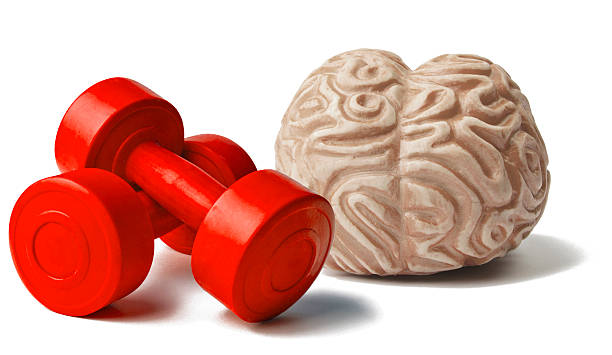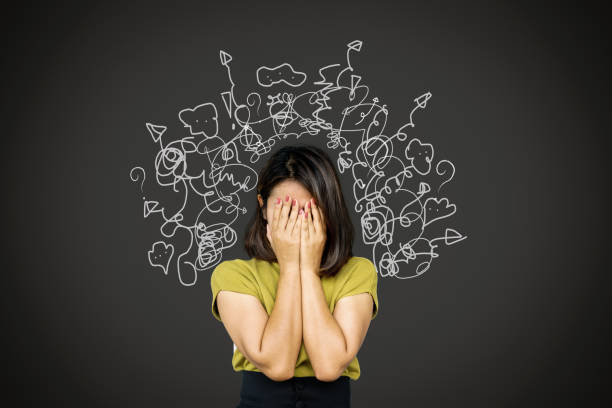
When you hear the word “health,” what comes to mind? Most of our minds instinctively think of physical health when we hear the words “exercise,” “healthy diet,” “drinking water,” and so on. While physical health is vital for keeping our bodies in shape and working properly, maintaining our mental health is as important for living a healthy and happy existence.
When traumas aren’t apparent, they’re easy to overlook or dismiss. Pre-existing disorders may reemerge, and new mental health problems may form. The consequences will be life-threatening for some. Stigma, marginalisation, and discrimination are all compounded by the lack of treatment. The implications can have a significant influence on a person’s safety, dignity, and physical health, as well as communities’ and states’ ability to effectively manage mental health and psychosocial difficulties.
The connection between mental and physical health is sometimes misinterpreted because the mind and body are seen to be two independent beings, however, these two entities frequently need to collaborate for our own well-being. Our mental health can have an immediate impact on our physical health, and vice versa.
How Mental Health Can Affect Your Physical Health

13% of the world’s population suffers from mental health and substance abuse issues. Negative thinking, low energy levels, changes in mood or behaviour, isolation, struggling to cope with stress, changes in sleeping or eating routines, negative self-talk, and feeling sad or depressed are all signs of poor mental health.
It is not necessary to have a mental condition if you exhibit any of the symptoms listed above. When your symptoms become regular and start to compromise your capacity to physically function in daily life, you have a mental health issue (mental illness). Anxiety, depression, schizophrenia, PTSD, ADHD, eating disorders, and addiction are all frequent mental illnesses.
So, how does your mental well-being influence your physical well-being? Don’t let the name deceive you. Your mental health has an impact on more than just your thoughts; it also has an impact on your behaviour and physical well-being. Poor mental health can affect not only your body’s capacity to make good decisions, but it can also raise your risk of chronic diseases such as heart disease and other health difficulties such as obesity, a weakened immune system, and more.
According to studies, the bodies of people with poor mental health display changes in how they work which could have a major influence on their physical health. Let me give examples.
Chronic diseases
Many chronic conditions have been linked to depression. Diabetes, asthma, cancer, cardiovascular disease, and arthritis are among these ailments.
Schizophrenia has also been related to an increased risk of cardiovascular and respiratory illnesses. Dealing with a chronic illness can be made more difficult by mental health issues. People with depression or other mental health issues have a greater mortality rate from cancer and heart disease.
Read: Why is Good Hygiene Essential for Health?
Sleep problems
Sleep disorders such as insomnia and sleep apnea are more common in those with mental health issues. Insomnia makes it difficult to fall or remain asleep. Breathing issues caused by sleep apnea can cause you to wake up frequently. Sleep issues affect between half to 80% of patients with mental illnesses. Only 10% to 18% of the overall population has sleep issues.
While disorders such as depression, anxiety, or bipolar disorder can cause sleep problems, they can also exacerbate underlying mental health issues.
Smoking
People with mental illnesses are more prone to smoke a larger number of cigarettes than people who do not have mental illnesses.
People who suffer from depression have lower levels of dopamine. Dopamine affects your brain’s happy feelings. As the nicotine in cigarettes causes the neurotransmitter dopamine to be produced, smoking may be used to alleviate depressive symptoms. However, because nicotine only provides short relief, you may have a strong desire to smoke on a regular basis, which could lead to addiction.
How Physical Health Conditions Can Affect Mental Health
Your mental health is influenced by your physical well-being. People who have physical health problems are more likely to have mental health problems.
For example, psoriasis is a skin disease marked by painful red lesions on the skin and it is linked to depression and acute stress. Psoriasis causes emotional nd psychological anguish, which has a significant impact on one’s overall health and quality of life. Anxiety, stigma, and rejection are the main causes of stress and depression.
Being told you have cancer or experiencing a heart attack can make you feel depressed or anxious. Depression symptoms, such as low mood, sleep problems, and a loss of interest in activities, affect about one-third of people with major medical illnesses.
Working on your physical fitness and health will not only help you live longer but will also enhance your mood and help you avoid mental illness. Healthy and active people have more energy during the day, sleep better, are calmer, and have a more positive outlook on life in general. Maintaining a healthy lifestyle and being physically active can reduce chronic diseases and conditions such as type 2 diabetes, anxiety, depression, heart disease, cancer, and dementia.
Exercise
Exercise is a strong treatment in and of itself for many common mental health issues. According to studies, it can treat mild to moderate depression as efficiently as antidepressants, lessen ADHD symptoms, and help with anxiety. This is because exercise causes a variety of changes in the brain, such as neuronal growth, decreased inflammation, and activity patterns that promote sensations of calm and well-being. It also causes your body to release the endorphins dopamine and serotonin, which make you feel happy and less worried.
Eating well
Eating well can also help you feel better and enhance your mood. Proteins, vital fats, complex carbs, vitamins, minerals, and water are all part of a well-balanced diet. Food has an impact on the development, management, and prevention of a variety of mental health problems, such as depression and dementia.
Read: What is the Link Between Mental and Physical Health?
So Which Is More Important?
So, mental or physical health, which is more important? Physical and mental health have a complicated relationship. The first step in designing measures to lessen the occurrence of co-existing illnesses is to understand the linkages between mind and body. However, the solution is straightforward: your body needs both mental and physical health in order to function effectively and allow you to live a happy and healthy life. It’s fine if you opt to focus on one area over the other if you’re having trouble in another. Just bear in mind how influential they are on one another and how critical it is to maintain your mental and physical well-being.
Before You Go…
Hey, thank you for reading this blog to the end. I hope it was helpful. Let me tell you a little bit about Nicholas Idoko Technologies. We help businesses and companies build an online presence by developing web, mobile, desktop, and blockchain applications.
We also help aspiring software developers and programmers learn the skills they need to have a successful career. Take your first step to becoming a programming boss by joining our Learn To Code academy today!
Be sure to contact us if you need more information or have any questions! We are readily available.









